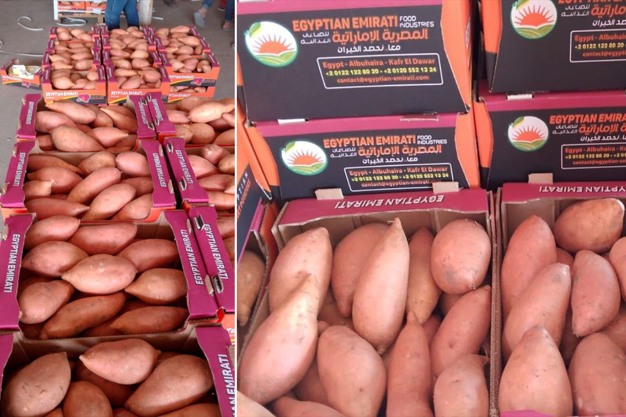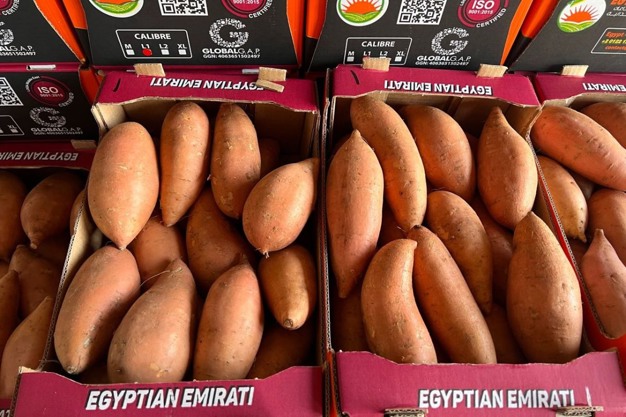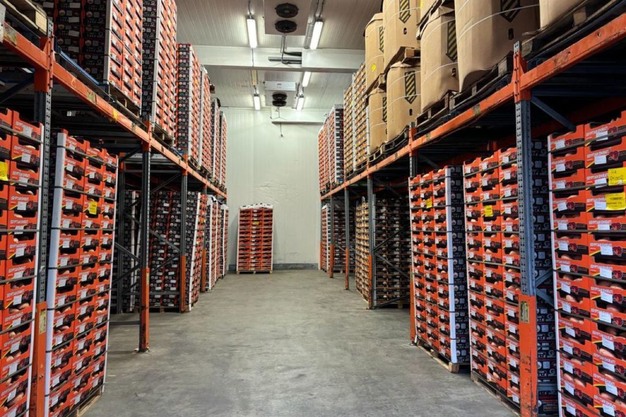Once again this year, Egyptian sweet potatoes have arrived on the market in substantial volumes. The crop's commercial success in recent years has encouraged many growers to join the sector, sometimes resulting in falling prices. Mohamed Maatouk, CEO of Egyptian Emirati, remains confident in the stability and maturity of the industry in the years to come, an industry he describes as a "success story of quality and price".

Maatouk states: "Egypt has become the largest supplier of sweet potatoes to the European market in recent years. In 2023/2024, shipments of Egyptian sweet potatoes to the European Union rose by 45% to 109,000 tonnes. According to data provided by specialist website East Fruit, this is an all-time record, enabling the Egyptian industry to overtake the USA - the world's leading exporter - to become the EU's main supplier."
The grower continues to demonstrate the industry's success, with figures to back it up: "Overall, the Netherlands remains the main buyer for the Egyptian sector, with almost 60% of shipments, i.e. around 65,000 tonnes, followed by France and Italy. Remember that Egypt is Africa's leading exporter of sweet potatoes, and 3rd worldwide after the United States and the Netherlands. In 2023, Egyptian shipments of this crop on the international market earned the country $127.5 million. Egypt also supplied a total of 3,700 tons of sweet potatoes to the markets of Denmark, Norway, and Sweden from July 2022 to June 2023. In addition, since 2017/18, Egyptian sweet potato shipments to Scandinavia have increased 51-fold, at least doubling year-on-year!"

Behind this performance, a considerable increase in acreage, a guarantee of Egypt's reliability as the main origin of sweet potatoes in Europe, says Maatouk. He explains: "This year, the estimated increase in total sweet potato acreage is around 30% in Egypt. This means we can guarantee a continuous supply and the best quality of sweet potatoes. We started the small-scale Egyptian harvest in July, but the volume will increase over the following weeks. From September to March, we'll see good volumes again. We should also extend the season a little longer, perhaps until May 2025."

The rapid development of this sector is not without complications. Last season, volumes from Egypt were so large that prices plummeted, and growers decided to suspend harvesting to stop the financial hemorrhage. According to Maatouk, the maturity of the industry in Egypt will come through specialization in one period of the year. He explains: "It's worth noting that Egypt's main competitor in the EU sweet potato market is the USA, although in recent seasons the supply periods for Egyptian and American sweet potatoes have overlapped less and less. The main supply season for Egyptian sweet potatoes runs from August to January, coinciding with the lowest levels of imports from the USA. In contrast, the USA dominates the EU market from February to July. Hopefully, the European sweet potato market has not yet reached its full potential. Increasing imports and local production initiatives are encouraging current consumption and product development. We also see that consumption is most developed in the UK, while the Netherlands is positioning itself as a hub for northern European growth markets such as Germany and France."
The grower concludes: "We stand out in this context. At this early stage of the season, we are working hard to guarantee and maintain high-quality shipments and a very competitive price in the face of strong demand from the European market this year. We are helped by higher volumes than last year, better sizes, and special attention from the Egyptian government to the sweet potato industry in order to take advantage of the strong demand."
For more information:
Mohamed Maatouk
Egyptian Emirati
Tel: +20 122 122 8020
Email: [email protected]
www.egyptian-emirati.com










